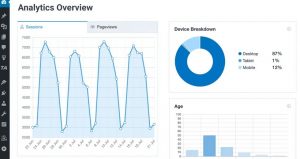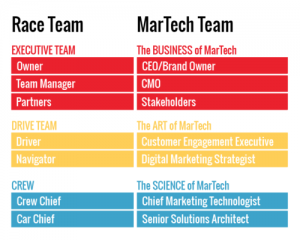by John Motavalli, Columnist, November 16, 2016
As if the threat from domination by Google and Facebook and the rise of ad blockers isn’t enough, now we’re being told that bad ads are going to kill digital advertising.
A startup called Ad Lightning, based in Seattle, has secured $2 million from Sinclair Digital Ventures and other investors. Ad Lightning wields a “proprietary intelligence tool” that is designed to weed out programmatic ads that slow down or detract from the user experience at a given Web property. The IAB has a series of standards it calls LEAN that attempts to also identify and ultimately remove offending ads, and Ad Lightning pledges to work within those standards.
We conducted an email symposium with Scott Moore, CEO of Ad Lightning, on bad programmatic advertising. He thinks that the ad tech industry will die unless it cleans up its act. The biggest culprit, he says, is the type of ad that seriously slows down the user experience.
“Every two seconds of page load delay causes an 18% drop off in user engagement,” Moore says. I’m not sure how generally well known that is, but it’s a fascinating metric. So many ads are designed with all kinds of bells and whistles to get the viewer interested, but the opposite result is obtained.
“The primary ad related issues that we see in our data are those that cause latency,” Moore observes. “We measure the delta in page load time with and without ads for our customers and analyze the underlying root causes of the latency. Slow pages lead to fewer pages consumed and thus fewer ads served resulting in lost revenue.”
CPU Consumption Is The Bigger Problem
A more popular conception, spawned by all those companies that offer to clean up your computer, is that most of the problem is tied to malware. But, Moore notes, “while there is a lot of noise about malware in ads, we don’t see it frequently. The bigger and much more prevalent problems are with CPU consumption by ads as they render, file size — we often see 4MB ads being served to mobile browsers — and huge numbers of tracking and user sync scripts fired off by ads. We often see a single ad triggering over 100 unique JavaScript calls. These not only slow things down, they lead to data leakage. The other offenders are auto-play media (video and audio) and poorly executed animation in ads.”
The ad tech industry, Moore maintains, is caught in a vicious cycle in which slow-loading ads cause frustration, leading to downloads of ad blocking software, or the use of new ad blocking browsers like Brave.
“The biggest threat to the industry is the rise of ad blocking software installs. Page Fair and Adobe have published an annual study that I’m sure you’ve seen. The only rational way for the industry to discourage ad block usage is to clean up our collective act. Consumers understand that free content has to be paid for and that ads are a key part of it. Unfortunately, an unintended consequence of the rise of programmatic advertising is the degradation of the consumer experience and that is causing a revolt in the guise of ad blocking software. “
And, as with everything else in the ad tech world, Facebook has a big advantage in this bad ad arena.
“Ironically, Facebook doesn’t have the same problems because they closely control ad quality and they have a proprietary user ID platform,” Moore says. “Given that Facebook is a competitor to everyone else selling ads its would make sense to pay attention and adopt some of their best practices.”
I think Moore knows what he is talking about on this issue. Most recently he was the CEO of a humor property called Cheezburger, Inc., which was sold. He also was head of media at Yahoo! in the 2000s, and was GM at MSN, publisher of Slate and president of MSNBC.com.
MediaPost.com: Search Marketing Daily
(61)






